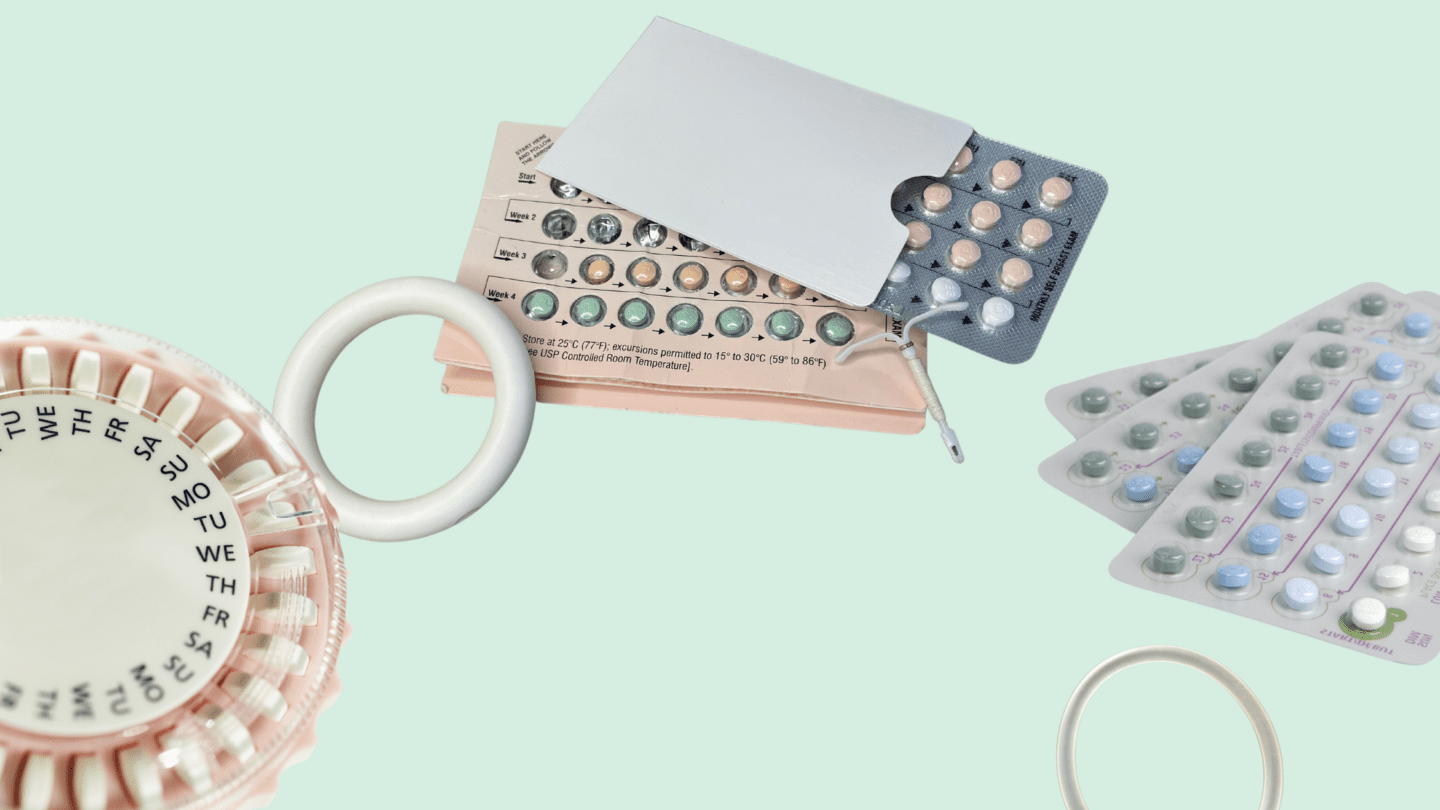We look to online quizzes to tell us about our personalities, our love languages, the best bra for our breast shape, and so much more. We even seek out online quizzes to recommend medication. Every year, there are over 24,000 searches on Google1 of people looking for quizzes, and another 60,000 searching1 for answers to the question “What is the best for me?”
The data reveals the shortcomings of how is currently selected (what you might call “the standard of care”). The current standard of care is that a medical provider typically relies on their previous exposure to, or familiarity with, various methods to write a prescription. Both doctors and consumers know that there are many options available but are not equipped with the tools to make a precise and personalized selection.
The lack of individualized care is compounded by the decades-long PR crisis that has plagued around the adverse side effects it can cause. This too comes through in consumer search data. Every year, Google sees over 6 million searches1 on the topic of and side effects: from people anticipating side effects to people currently suffering to people wondering if something they’re experiencing could be caused by their . users are desperate for answers and guidance. For a generation that grew up looking to the internet for answers, it should come as no surprise that the humble online quiz has emerged as next gen WebMD.

It’s true that online quizzes can help you think about some of the factors that are important to consider when selecting a option, but there are also significant shortcomings. What many people aren’t aware of is that precision medicine, the practice of using information about a patient’s s, environment, and lifestyle to inform, select, design or modify medical care, can and should play a role in selection – because is not one-size-fits-all.
Like what you’re reading? Get the latest straight to your inbox 💌
We investigated the world of online quizzes to understand the breadth of options, consistency of questions, and quality of outputs.
Here are five reasons why should be more than an online quiz:
- You might get different answers depending on what quiz you take. Of the 14 quizzes we analyzed, no two quizzes asked the same questions. No two quizzes were even 50% the same. The most frequently asked question was included in eight of the 14 quizzes: “Do you want to have children in the future?” (A loaded question in and of itself!) The inconsistency of questions across quizzes likely means you’ll get different answers for what the best is for you. If you take three quizzes and get different answers, how do you choose?
- Sometimes you just don’t know how to answer a quiz question. For example, five of the 14 quizzes we evaluated ask whether you’re willing to use a method that contains hormones. This question is problematic for two reasons: first, it is fully possible that you just don’t know the answer (and there is nothing wrong with that!). Second, some may interpret this question as a signal that there’s something bad about using a method with hormones. In fact, has been proven to be among the most effective forms of available. A quiz that potentially leaves you with more uncertainty and doubt is not ideal.
- A quiz may not help you narrow down your choices. If you don’t have a strong preference for a particular method from the start, or are unsure of the benefits/drawbacks of certain methods, quizzes don’t narrow down the right choice for you. For example, depending on your quiz answers, the shot, pill, ring, or an IUD may all be presented as equally great options.
- Most quizzes don’t include questions that absolutely should be considered when selecting . Only three of the quizzes we analyzed ask about a person’s history of blood clots. Some types of heighten the risk of developing Venous Thromboembolism2 (VTE, aka blood clots), which can be deadly. Peer-reviewed scientific publications have shown that some genetic s are clearly associated with a higher risk of VTE.2 If a person with even one of these genetic s is on the wrong (combined oral contraceptives), their risk of developing a blood clot can increase 30-fold.3 Clearly, the risk of blood clots should not be ignored. Although many people simply don’t know their genetic risk of blood clots, the exclusion of this question from most online quizzes indicates a lack of scientific rigor for helping an individual select . The right for a person’s body is definitely not one that increases their risk for blood clots.
- No matter how sophisticated, no quiz can tell you what will work with your unique biology. It might help you narrow down to a method based on your preferences, but with almost 200 options available, a quiz can only get so personal.
So what’s better than an online quiz?
While personal preferences can and should play a role, choosing your should be more scientific. Given that every body is unique, precision medicine is the ideal tool to personalize selection.
Here’s how you can make a more informed decision about and your overall reproductive health:
- Take back control of your in-person and telehealth appointments with your physician when discussing your reproductive health and choices. The average time spent on contraceptive counseling during a doctor’s appointment is an abysmal 13 minutes.4 Important decisions can (and should!) take longer than 13 minutes. Preparing a list of questions and topics you want to cover with your provider can help ensure you’re covering what is important to you. Practicing how to be your own best advocate will pay off in spades, in medical settings and beyond.
- Seek out new methodologies to determine what’s best for your body. Currently, medical providers reference the CDC’s Medical Eligibility Criteria for Contraceptive Use to prescribe , selecting from nearly 200 prescription options. While providers can evaluate contraindications to narrow the selection—such as combinations of medications that decrease contraceptive efficacy—there is no analogous tool to help patients avoid adverse side effects. Providers are essentially taking a shot in the dark, with no ability to predict which patient will experience which side effect.Precision medicine can change this for the 407 million women of reproductive age globally who are using in the form of a pill, injectable, IUD, or implant.5 The Birth Control Test is one example of a new development made possible by precision medicine that is advancing the selection process – because women have put up with trial-and-error for long enough.
Is adyn right for you? Take the quiz.
Great expectations
The women’s healthcare market will be $1.2 trillion by 2027.6 Women make up 50% of the and spend 80% more on health expenses than men, especially during their reproductive years.7 Women are growing increasingly frustrated with how their healthcare is handled and how is prescribed to them. In 2022 and beyond, we expect to see burgeoning interest from women who are not only taking control of their own health, but also demanding more personalization.
As solutions that truly personalize selection emerge, the online quiz will lose its shine. Quizzes may help you narrow your options, but the answers encoded in your unique biology can actually get you to the best choice. That means a method that is not synonymous with suffering.
Ready for answers that only your biology can provide? Get started with The Birth Control Test.
-
- adyn internal research, 2022
- McDaid, A., Logette, E., Buchillier, V., Muriset, M., Suchon, P., Pache, T. D., Tanackovic, G., Kutalik, Z., & Michaud, J. (2017). Risk prediction of developing venous thrombosis in combined oral contraceptive users. PloS one, 12(7), e0182041. https://doi.org/10.1371/journal.pone.0182041
- Vandenbroucke JP, Koster T, Briët E, Reitsma PH, Bertina RM, Rosendaal FR. Increased risk of venous thrombosis in oral-contraceptive users who are carriers of factor V Leiden mutation. Lancet. 1994;344(8935):1453-1457. doi:10.1016/s0140-6736(94)90286-0
- Madden T, Mullersman JL, Omvig KJ, Secura GM, Peipert JF. Structured contraceptive counseling provided by the Contraceptive CHOICE Project. Contraception. 2013;88(2):243-249. doi:10.1016/j.contraception.2012.07.015
- United Nations, Department of Economic and Social Affairs, Population Division (2019). Contraceptive Use by Method 2019: Data Booklet (ST/ESA/SER.A/435).
- Barreto B, Karr J, Farnham M, et al. Femtech Focus; 2021. https://femtechfocus.org/wp-content/uploads/2021/09/FemTech-Landscape-2021_v3.pdf. Accessed March 17, 2022.
- DoL.gov, General Facts on Women and Job Based Health. Updated December 11, 2018. Accessed March 17, 2022. https://www.dol.gov/sites/dolgov/files/ebsa/about-ebsa/our-activities/resource-center/fact-sheets/women-and-job-based-health.pdf








